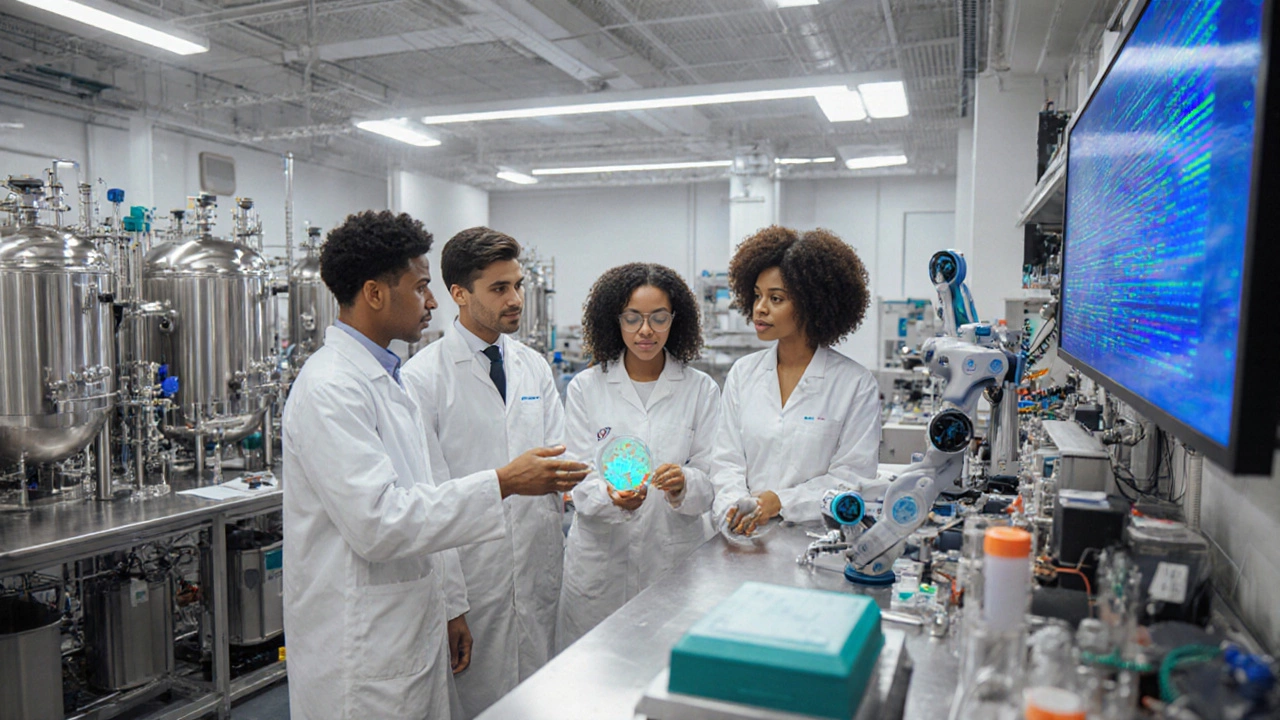Career in Biotechnology: Jobs, Skills, and Real-World Impact
When you think of a career in biotechnology, a field that uses living systems to develop products and technologies for health, agriculture, and industry. Also known as biotech, it's not just lab coats and petri dishes—it's about solving real problems like cancer treatment, climate-resilient crops, and faster drug development. This isn’t science fiction. It’s happening right now in labs across India, from Bangalore to Hyderabad, with companies and researchers turning biology into breakthroughs.
What does this career actually look like? You could be designing nanomedicine, tiny drug carriers that deliver chemotherapy directly to tumors, reducing side effects like Doxil or Abraxane. Or you might be working with AI in biotechnology, using machine learning to predict protein structures or speed up gene editing—not replacing scientists, but making them 10 times more powerful. These aren’t side notes. They’re core parts of today’s biotech landscape, and they’re hiring. You don’t need to be a genius. You need curiosity, basic lab skills, and the willingness to learn.
Most people assume you need a PhD to get in. Not true. Many roles start with a B.Sc. or M.Sc. in biotechnology, microbiology, or biochemistry. Entry-level jobs include lab technician, quality control analyst, or research assistant. From there, you can move into regulatory affairs, bioinformatics, or even product development. The field is expanding fast because demand isn’t slowing down. Hospitals need better drugs. Farmers need drought-resistant seeds. Governments need faster diagnostics. And India? It’s building its own biotech ecosystem—with startups, public funding, and global partnerships.
You’ll find overlap with other fields too. One post here explains how nanoparticles are used in medicines, not soft drinks. Another shows how AI is helping biotech labs analyze data faster. There’s even a guide on how long it takes to become a medical scientist—because that’s often the next step. This isn’t a single path. It’s a network of roles, tools, and technologies all tied together by one goal: using biology to improve life.
So if you’re wondering whether a career in biotechnology is worth it, the answer isn’t in salary charts or job titles. It’s in the impact. You could be part of the team that develops the next life-saving drug. Or designs a test that catches disease before symptoms appear. Or helps farmers grow food in a hotter world. The tools change. The science evolves. But the purpose stays the same. Below, you’ll find real articles that break down exactly how this works—no jargon, no hype, just what’s happening today.
Biotechnology Jobs: Career Paths, Salaries, and How to Get Started
Oct, 5 2025
Explore the wide range of biotechnology jobs, from lab scientists to regulatory and sales roles, with salary insights, required skills, and tips to start your career.
Read Article→